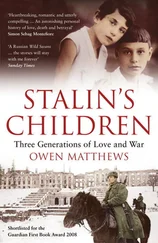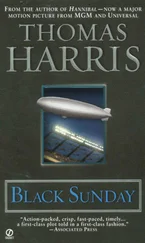At the stationmaster’s whistle the locomotive reversed away from the platform, the red star emblazoned on the front of its boiler disappearing into the night. The new arrivals were momentarily blanketed in a cloud of hot, oil-scented steam.
The guards saluted every passenger and requested papers, corralling them to a pair of clerks, who sat checking and stamping in a bright pool of lamplight. To Vasin’s surprise they made no attempt to search any luggage.
In the empty waiting room a stocky, bearded man sat hunched on a bench, holding a book close to his face. He wore a creased trilby hat, and his winter boots were half-laced and unpolished. Vasin stood before him in slightly bemused silence.
“Ah! Comrade Major Vasin?” The man stood quickly, snapping the book shut and scooping it into his coat pocket. “Greetings. Vadim Kuznetsov. Major. Arzamas State Security.”
He was a head shorter than Vasin, but nonetheless contrived to look down his long nose at him, squinting through black-rimmed glasses. His shirt was buttoned tightly round a thick neck, and his pointed beard jutted forward.
“Welcome to Arzamas-16. The city that does not exist.”
Outside the station, the last of Vasin’s fellow passengers were boarding a small bus. The only other vehicle standing on the forecourt was a UAZ military jeep.
“This is us.”
Kuznetsov jerked down the stiff door handle and tossed Vasin’s suitcase unceremoniously onto the backseat.
“Jump in.”
“You don’t lock the car?”
“Ha! No thieves in Arzamas! This is the most honest city in the Soviet Union.”
Kuznetsov bounced into the driver’s seat, pumped the accelerator, and held up a finger, demanding reverential silence. The engine shuddered into life.
“Miracles!”
He ground the jeep into first gear.
“She’s not broken in yet. You know, new cars.”
Vasin glanced sharply at his companion for any sign of mockery. But Kuznetsov was oblivious, wrestling the UAZ’s gear stick. His was evidently a world where new cars were an everyday annoyance. They accelerated alarmingly along a broad, freshly tarmaced boulevard.
“Our beautiful town.” Kuznetsov waved a hand airily as he zoomed through a crossroads without slowing down or looking for crossing traffic. “We’ll have the scenic tour tomorrow.”
They saw no other people or cars as the city thinned from stucco pre-Revolutionary facades around the station into uniform rows of the modern five-story concrete blocks known as Khrushchevki.
“Here we are. You’ll be staying with me for your visit.”
The engine shuddered to a halt. The night was still except for the croaking of frogs. A row of young apple trees gave off a strong odor of rotting fruit.
Kuznetsov’s apartment was large and empty. A broad corridor ended in a deep bookshelf, on which a few books were haphazardly stacked. On the right were two spacious rooms; on the left was a sitting room and, beyond it, a kitchen and bathroom.
“I’m in here. You’re next door.”
Kuznetsov gestured casually into the first of the bedrooms, where a mulch of shirts and coat hangers covered the bed and spilled onto the floor and a small desk stood covered in notes and printed papers.
In the sitting room, polished glass-fronted cupboards entirely filled one wall. It looked like the House of the Future exhibition Vasin had visited with his son, Nikita, at the start of the summer holiday: boxy armchairs and a square sofa, upholstered in bright-striped fabric. Not a sofa bed, but a compact two-person sofa which could not be used for sleeping on. Vasin had never seen such a thing. Before his marriage, he and his mother had lived in two adjacent rooms in a rambling, high-ceilinged communal apartment off Metrostroyevskaya Street in Moscow. They shared the kitchen and bathroom with two other families, seven people in all. With his transfer to the KGB, Vasin had moved with Vera and their son into a two-room apartment of their own near Gorky Park, a sign of giddying privilege. Yet here he stood in a room in which no one lived at all. A room just for sitting in. In the corner stood a large radio and record player, the latest model from Rigonda, in an oak case. And on the shelf a meter-long row of records.
“From Czechoslovakia,” Kuznetsov called from the kitchen. “The furniture, I mean. They brought a trainload of it last year. Nice, no?”
Vasin’s agreement was drowned out by a clatter of pans.
“Got some food from the canteen. Borscht. Meatballs. Mashed potatoes.”
In the kitchen a new refrigerator, not a rumbling monster from the Stalin Factory, purred in the corner. Kuznetsov tossed Army-style aluminum mess tins onto the Formica kitchen table.
“We’ll have everything, I guess? I’m hungry too.”
Kuznetsov set enameled pots onto the electric cooker with a clatter and unscrewed the mess tin lids.
“Go wash if you like. I’m an excellent cook. Look!”
He took a mess tin in each hand and splashed their contents into the pots.
By the time Vasin returned from his shower Kuznetsov was hunched over the table, slurping soup. A portion for Vasin steamed in a large Uzbek bowl.
“So. Has someone briefed you on what happened?” Kuznetsov pointed his beard quizzically at his new roommate.
“The case summary says that Fyodor Petrov was poisoned. Accidentally.”
“Right. Bright young physicist. Sad business.”
“It says a lot about what happened. Nothing about why.”
Kuznetsov pushed away his empty bowl, stood to open the window a crack, and lit a cigarette.
“Why, indeed. That is the question, Comrade Vasin.” He spun a steel ashtray onto the table. “We are not very used to outsiders here in Arzamas. To what do we owe the pleasure?”
Vasin slowly dipped his spoon in the soup, tasting it in silence. Then: “Good soup.”
“Wouldn’t want you to starve, Comrade.”
Vasin ate on in silence.
“Is there a reason I shouldn’t have come, Comrade Kuznetsov?”
“Forgive me. Personnel tells us that you have recently joined State Security—”
“From the Moscow Police Criminal Investigation Department. Homicide Department. That is correct.”
“Homicide?”
“Does that bother you, Comrade?”
“Well. You know about Arzamas. Something about the word ‘homicide’ makes us nervous. And the Lubyanka usually lets us take care of our own business.”
“Actually, I don’t know about Arzamas.”
“They didn’t tell you anything in Moscow?”
“Let’s say they didn’t.”
Kuznetsov exhaled smoke.
“Consider Arzamas a separate planet. Some of the greatest minds of the Soviet Union are here, doing vital work for the defense of the Motherland. Social deviants to a man, in the opinion of some of our colleagues.” Kuznetsov leaned forward, his breath strong on Vasin’s face. “But here’s the thing—no one cares about what they do. What they think. What they read. Who they sleep with. Nothing matters, as long as they do the job they’re here to do. So take all the rules you know, and add a new rule at the top: Nothing interferes with the project.”
“What project?”
Kuznetsov snorted and loudly clattered his bowl into the sink.
“Kuznetsov.” Vasin softened his tone. “Really. What project?”
“Nothing interferes with RDS-220.”
Vasin digested this for a moment.
“Which is a kind of bomb?”
Kuznetsov flinched at the word.
“It is a device. A new device.”
“Isn’t that what they do here? Why this is a secret city? Make new devices ?”
“Not like this one. It is bigger. Much bigger. And urgent. Top-level Politburo order.”
“Our Soviet way. Always the biggest. Always the best.”
Читать дальше












